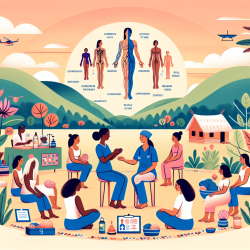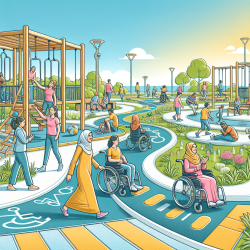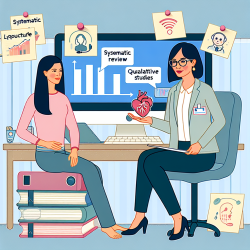Lymphoedema is a chronic condition that affects millions worldwide, often resulting from lymphatic filariasis. In the Dominican Republic, where this disease is prevalent, understanding the cultural context of health-seeking behaviors and self-care practices is crucial for effective management. A recent study explored these aspects among Dominican women, offering valuable insights for healthcare practitioners.
The Cultural Context of Lymphoedema in the Dominican Republic
The research highlights that many Dominican women initially seek care from indigenous healers due to strong cultural beliefs and family influences. These healers provide a blend of physical, mental, and spiritual care. However, when traditional methods fail, women often turn to trained healthcare providers. Unfortunately, many physicians misdiagnose or inadequately treat lymphoedema, leading women to resort to self-prescribing antibiotics.
Implications for Healthcare Practitioners
Healthcare providers must appreciate the cultural perspectives of illness and the natural support networks that influence women's health-seeking behaviors. By understanding these factors, practitioners can tailor interventions to be more culturally sensitive and effective.
- Family-Oriented Interventions: Educating family members about lymphoedema can enhance support systems and improve management outcomes.
- Community Education: Training indigenous healers in simple lymphoedema management techniques can facilitate early detection and treatment.
- Healthcare Provider Training: Continuous education on accurate diagnosis and treatment of lymphoedema is essential for medical professionals.
The Role of Self-Care in Lymphoedema Management
The study reveals that many women engage in self-care practices such as using antibiotics without medical supervision. This highlights the need for healthcare education on the risks of unsupervised antibiotic use. Practitioners should provide clear guidance on safe self-care techniques and emphasize the importance of medical supervision.
Encouraging Further Research
This study underscores the importance of culturally informed research in developing effective health interventions. Practitioners are encouraged to engage in further research to explore the complex relationship between cultural beliefs and health-seeking behaviors. Such efforts can lead to more effective lymphoedema management programs that resonate with local communities.
To read the original research paper, please follow this link: Health-seeking behaviors and self-care practices of Dominican women with lymphoedema of the leg: implications for lymphoedema management programs.










